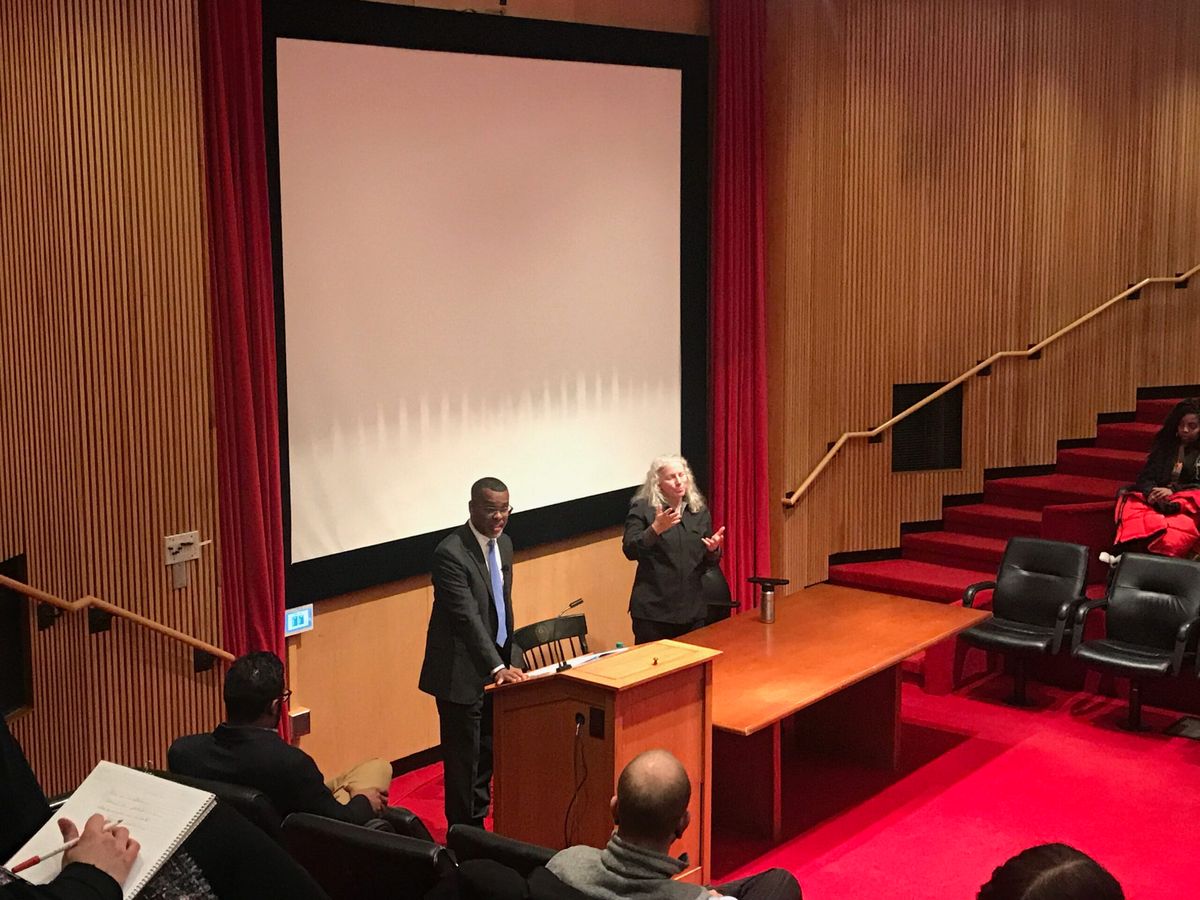Professor Connects Black Lives Matter to Baldwin in Talk

On Feb. 20, author and Professor Eddie Glaude Jr. gave a talk at the college titled “Interrogation of Excellence in the Black Experience.” The talk, which was held in Cole Assembly Room, is the last installment in the Dr. Martin Luther King Jr./Black History Month Symposium speaker series.
A professor of religion and African American studies at Princeton, Glaude additionally boasts previous visiting scholar positions at Harvard and Amherst. He regularly writes for Time and MSNBC, and is the author of multiple books including “Democracy in Black: How Race Still Enslaves the American Soul,” among other books.
Glaude began his talk by sharing a story about his son who had left home for college. Though he noted that missing his son was a normal feeling, he added that the sentiment was amplified by the fact that his son is a black man in America.
“My son attended Brown University but that doesn’t matter. He is still subject to a kind of precarity that comes with being a black person in this country,” he said. “At any moment some police officer could see him as a threat, and because of the value — or should I say lack of value — according to his body, he could easily suffer premature death.”
Relying on the concept of excellence as a backdrop for the rest of his talk, Glaude further invoked inspiration from the Black Lives Matter movement and author James Baldwin’s writing to analyze the current state of black bodies in the U.S. “America sometimes resembles an exceedingly monotonous minstrel show,” he quoted from Baldwin.
In examining the rise of the Black Lives Matter movement, Glaude noted the uptick in the belief that white lives have more value. The rise in this sentiment, he added, brings to light the root of white supremacy.
“White supremacy is more than bad people in hooded robes burning crosses … These people are easily condemnable. White supremacy involves the way our society organizes itself and whom it chooses to value,” Glaude said.
Because of the barriers white supremacy poses on black people, Glaude said, it becomes more difficult for black people to achieve excellence. To encapsulate his definition of excellence, Glaude raised another term: black democratic perfectionism. Black democratic perfectionism, according to Glaude, encompasses a “radical cultivation of democratic individuality in the service of racial justice.”
“I don’t mean some facile, bourgeois idea of individualism consistent with the political rationale of neoliberalism,” he added. Glaude separated black democratic perfectionism from the preppy, curated brands of certain Black Lives Matter personas, joking that it often involved “blue Patagonia vests.”
Turning back to Baldwin, Glaude described the “negro problem,” in which black people feel a sense of generational powerlessness, having suffered through systemic hardship and watching their children continue to experience the same things.
“You gotta create, in that child, some way of surviving this particular world, some way to make the child who will be despised not despise himself,” Glaude said.
This distortment of the sense of self complicates the path towards perfectionism, forcing one to confront what Baldwin called reality.
“That assertion [of perfectionism] requires an unflinching encounter with the ugliness of who we are and a rejection of comforting illusions that hide the lie of all of the rot underneath the American idea,” he said.
For black people, staying put and not confronting this reality means surrendering themselves to death. Because of this reality, according to Baldwin, one must recognize that history is not merely a book but rather something that lives within an individual. Glaude then cautioned against equating principles with experiences, adding that “such an approach to history requires a black self in particular that isn’t reducible to sociology.”
Glaude afterwards reflected on his experience as a Princeton professor navigating the world of elitism. Though the university offers a sense of escape, he noted that “the moment I leave Princeton, I walk into a segregated environment.”
This dichotomy exposes the richness and complexity of black democratic perfectionism, Glaude added. Oftentimes that means becoming wounded, to which Glaude compared to broken pots that are repaired by filling the cracks with gold, making them more valuable.
“This is what I mean by Baldwin’s black democratic perfectionism — it starts with brokenness,” he said.
The talk was followed by a Q&A session, in which Glaude talked about issues including trauma and protest movements at Amherst.
“We have to begin again for those young people, and dare to break free,” Glaude concluded.
Shatoyia Jones ’21, who attended the event, found Glaude’s discussion on self-image pertinent.
“The main thing I took away from [his] speech is that we are seeking approval from the institutions we seek to dismantel,” she said. “It is difficult to escape that need for approval when all we have heard and grew up with is that white is better.”





Comments ()